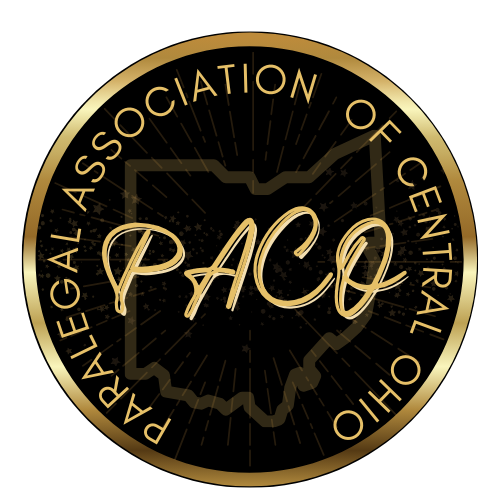NATIONAL FEDERATION of PARALEGALS ASSOCIATION (NFPA) |
|
In 1974, in response to a growing interest in the development of the paralegal profession, eight paralegal associations founded NFPA. It is a professional, non-profit organization comprised of state and local paralegal associations and represents paralegals throughout North America. NFPA reflects a broad diversity of paralegals and offers a forum for practicing paralegals in all sectors, including private law firms, corporations, legal service agencies, financial institutions, courts, trade associations, federal, state and local government, insurance agencies and other traditional and non-traditional settings. The NFPA sponsors a representative on the ABA's Committee on Pro Bono and Community Service, who is the only paralegal invited to participate in this committee. NOTE: If PACO members have any questions about the NFPA, please send them to PACO's NFPA primary representative at: nfpa@pacoparalegals.org or PACO's NFPA Secondary Representative at: statewide@pacoparalegals.org NFPA Mission StatementThe National Federation of Paralegal Associations, Inc. promotes a global presence for the paralegal profession and leadership in the legal community. As adopted July 2004, NFPA was formed to:
NFPA supports the independent role of the paralegal and the vital role paralegals provide in the delivery of quality legal services. NFPA—The Standard for ExcellenceSince 1974, NFPA has supported the growth and expanded role of paralegals. The voice of the profession, NFPA represents paralegals in many areas.
Paralegal ResolutionWHEREAS, when this profession was first developed, the preferred term for those working in this field was "legal assistant". However, throughout the years, legal assistants came to also be called "paralegals"; and in 1995, a majority of NFPA's members voted to approve policy that NFPA prefers the term "paralegal" over the term "legal assistant"; and, WHEREAS, despite the fact that statements were made early on that paralegal/legal assistant were equal and interchangeable terms for a single profession, there has traditionally been confusion and conflict within the public and the legal community as to these terms, and the roles and responsibilities associated therewith; and, WHEREAS, our profession is facing additional confusion and conflict because in the last few years, an ever increasing number of: 1) law firms and other entities have begun calling their legal secretaries "legal assistants" and/or have begun tiering our profession such that individuals in entry-level positions are labeled "legal assistants" and those in more experienced positions are labeled "paralegals"; 2) legal secretaries have begun calling themselves, and signing correspondence which refers to themselves as, "legal assistants"; and, WHEREAS, we, as paralegals and members of the legal community, have an ethical obligation to avoid misconceptions and to prevent confusion and even the appearance of an impropriety; and, WHEREAS, the term "legal assistant" is now being used to refer to positions outside the paralegal definition, including, but not limited to, assistant county attorneys in some states and legal secretaries, it is no longer synonymous with the term "paralegal"; and, NFPA believes that it is in the best interest of our profession to promote the term "paralegal" as the proper nomenclature for members of this profession.NOW THEREFORE, BE IT FURTHER RESOLVED, that NFPA hereby reaffirms Resolution 95M-4 that "Paralegal" is the preferred term for this profession; and, BE IT FURTHER RESOLVED that Resolution 87-16 be revised as follows: RESOLVED that the NFPA adopt the following definition for Paralegal: A Paralegal is a person, qualified through education, training or work experience to perform substantive legal work that requires knowledge of legal concepts and is customarily, but not exclusively, performed by a lawyer. This person may be retained or employed by a lawyer, law office, governmental agency or other entity or may be authorized by administrative, statutory or court authority to perform this work. (emphasis added.) History Adopted 2002 NFPA ConventionsAnnual Convention provides opportunities to network with colleagues from across the country and visit exhibitors to learn the newest in legal services technology and support. Convention also provides opportunities to attend CLE and workshops geared toward leadership and association management issues. Fall Region Meetings allow delegates to come together to discuss common issues and brainstorm solutions to challenges facing all local associations. ANNUAL POLICY MEETINGS NFPA Annual Policy Meetings offer the ability to debate issues affecting paralegals. Annually, member associations meet to exchange ideas, discuss and debate critical issues facing the paralegal profession, and vote on the future direction of NFPA. Nowhere else can you participate in the same discussion and exchange of ideas that impacts your profession. During the Annual Policy Meeting, the delegates elect the NFPA Officers and Board of Directors. The NFPA Board is composed of twelve members, which includes five Region Directors. The Region Directors give each region's concerns a strong voice on the Board. The delegates also approve the NFPA budget at the Annual Policy Meeting. As a member-driven organization, the voting associations truly have the ability and exercise the privilege of shaping the future of the profession. According to the NFPA bylaws, the NFPA Board implements policy that is established by the delegates and handles the day-to-day administration of NFPA. The Vote. The most important benefit of NFPA membership is the right to vote on all questions brought before the policy meetings. Delegates have debated and voted on such matters as the definition of a paralegal, adoption of model language on numerous topics that may be adapted in full or in part by others, and development of PACE. Through its careful research and its insistence on local input, NFPA has been prepared with verifiable information and established positions to assist other groups such as bar associations, legislatures or committees thereof, and other organizations interested in the paralegal profession. These decisions have directly impacted the profession's development. |
